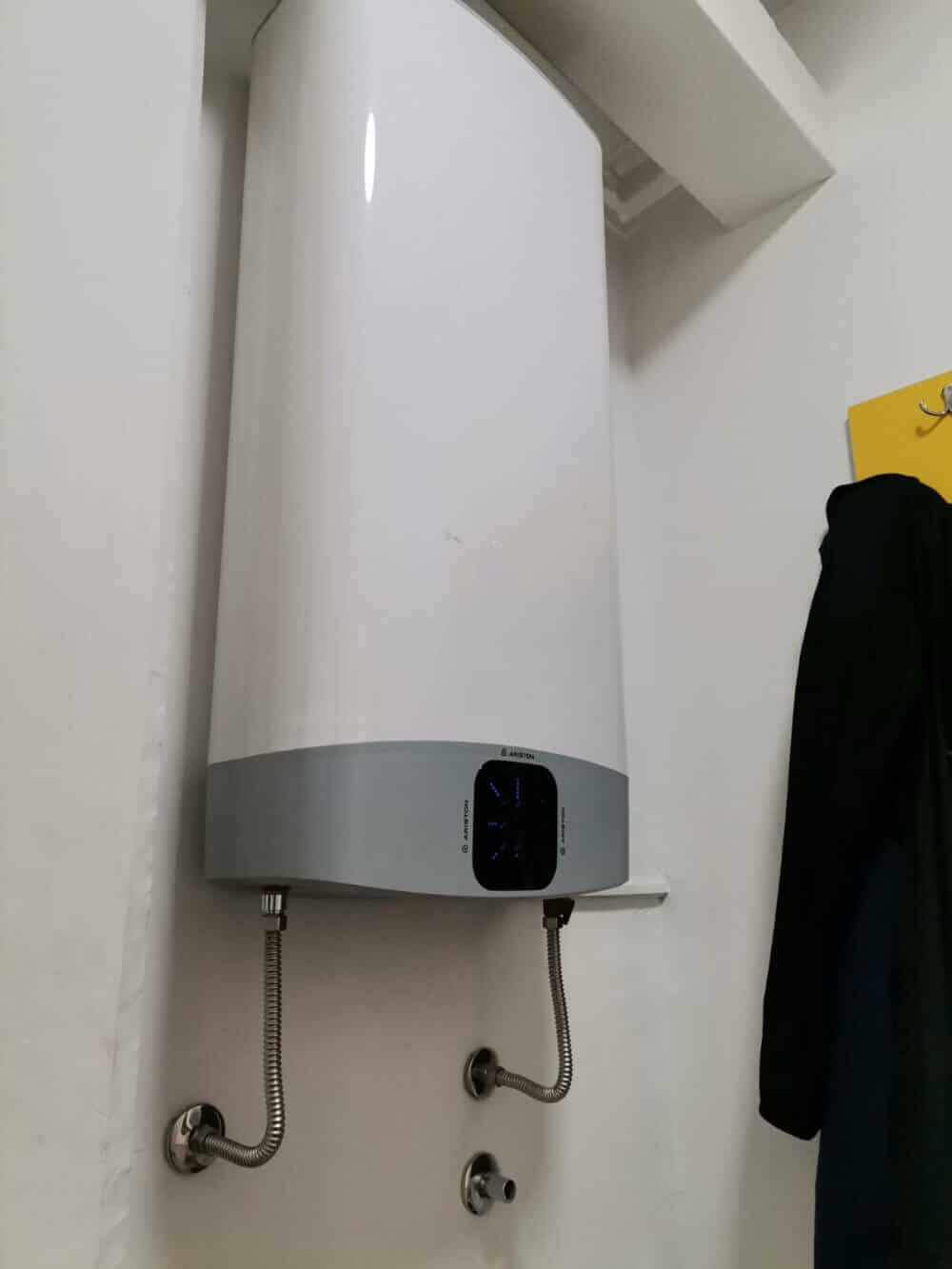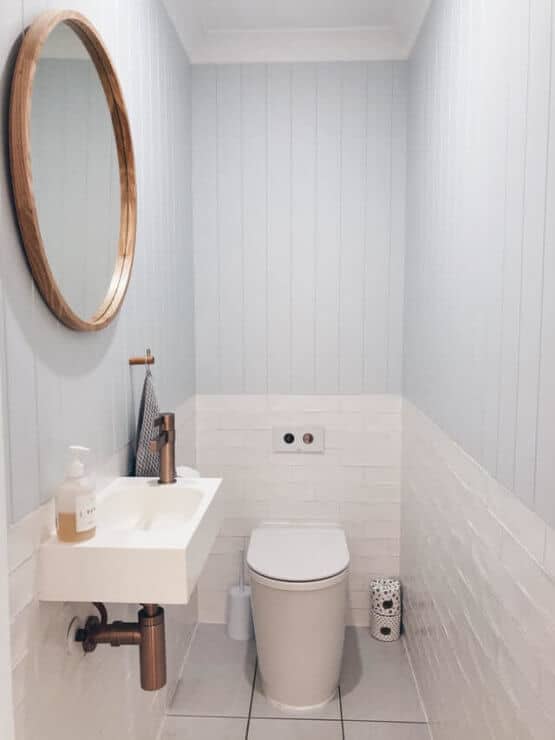Is tankless water heater worth it?
So many homeowners literally rave about tankless (also known as on-demand) water heaters. The term here is pretty much self-explanatory – a tankless water heater provides warm/hot water whenever you call for it (when turning on a faucet, switching on the dishwasher, and so on) with electric coils and high-powered gas burners.
Yet, is this whole hype around tankless water heaters fact-based?
Are tankless water heaters as efficient as they say?
Can it be this carry-on suitcase-sized unit can generate the same amount of water as your good old (and big) traditional storage tank water heater and save you thousands in the first year at the same time?
Until the end of this post, you’ll have a clear idea about – is tankless water heater worth it or nah, what are the extra benefits of tankless water heaters, what size tankless water heater would meet your water needs best, and more.
What Are the Benefits of Tankless Water Heater?

1. Hot Water on Demand
We’ve already touched this point in the intro and won’t give it too much space now. It’s already clear one of the major cons of tankless water heaters is that these units provide you almost instantly with an unending stream of warm/hot water.
2. Compact Size
Storage tank water heaters typically hold about 50 gallons of water (although their capacity varies from 30 to 60 gallons) and they are, on average, up to 5-feet tall and 2-feed wide (possibly even larger).
And then, there are tankless water heaters that come with no tank. The water only flows through the unit whenever you need it, and it’s such a convenience!
Instead of having to stash it in a closet or install it in your basement (so common with storage tank water heaters), you can mount your tankless water heater on a wall or fit it into any tight space in your home. Most tankless water heaters are 2-feet tall and 1-foot wide.
3. Longer Lifespan
Although traditional water heaters can last for up to a decade, tankless water heaters have an average lifespan of up to 20 years. So, instead of replacing the unit every 10 years, you can worry-free use your tankless water heater for twice as long.
4. Energy Efficiency
Consumer Reports conducted research that proved the biggest part of tankless water heaters is up to 22% more efficient compared to storage water heaters. Fun fact: tankless water heaters are actually more affordable to operate because they use natural gas while storage water heaters are more costly to operate because of the highest cost of electricity. Overall, their energy efficiency is quite high as well. It’s good to know the federal government offered special financing and tax breaks for homeowners who plan to buy and install tankless water heaters. [1]
5. No Standby Loss
Traditional water heaters reheat water over and over again, even when no one is home, which makes them less energy efficient than tankless water heaters. The latter eliminate standby loss, and this is one of the major selling points of tankless units.
6. Longer Warranties
Not only do tankless water heaters have a longer lifespan compared to electric ones, but they come with longer warranties. In other words – if and when things go down, you won’t have to pay for anything. Most tankless water heaters come with 20-year warranties, meaning – no repair costs as long as you stick to the unit like this and maintain it properly.
Tankless Water Heaters – Major Cons

1. Inconsistent Temperature
The biggest buyer complaints on tankless water heaters relate to inconsistent water temperatures. Some units come with heaters not powerful enough to supply multiple outlets with hot water simultaneously (that is why it is so important to choose the right size of your tankless water heater). Also, if you don’t open the faucet fully, it’s likely the heater won’t turn on at all.
2. High Initial Costs
It’s no secret tankless water heaters are quite expensive. You can’t find a solid unit below $1,000 and the average storage water heaters come at an average price of $500. Plus, the installation costs also differ, especially because tankless units require a non-traditional setup and/or gas line rerouting. Keep in mind specialized models and additional equipment (that’s sometimes necessary) such as water softeners add even more to the overall price tag of a water heater.
3. Making Up For the Initial Cost Could Take Years
No doubt you’ll notice a slight decrease in your heating costs month by month. Yet, the initial cost is still quite high and it might take years to make up for it. On average, you can save $75-$100 per year, meaning you’ll cover the installation costs only after 6 to 12 years.
4. It Is Necessary to Properly Maintain Your Tankless Water Heater
Limescale and hard water deposits easily build up within tankless water heaters, which could impact the heat exchanger performance negatively. If the problem is not taken care of in a timely manner, there is a chance the heater will break, and guess what – it will be your fault and the warranty won’t mean much.
Thus, make sure to descale/delime the heater every now and then to ensure its top-notch performance. Depending on the area you live in and the hardness of water, you may need to repeat the process every 6 to 12 months.
Dangers of Tankless Water Heaters – Are There Any?
Tankless water heaters, just like any other gas-powered unit, might pose a threat to your safety, but only under certain conditions. What is more, these units are way safer than traditional storage water tanks that can overheat or, even worse, have open flames and explode. Tankless water heaters come with built-in overheating sensors that automatically turn the appliance of if the temperature exceeds the safe limit.
However, it’s safe to say a sudden increase in inside pressure can make the tankless unit explode (although this rarely happens). Also, in case there are any leakages in the pipeline, carbon monoxide will start getting out of the system, and we already know inhaling carbon monoxide can cause fatal outcomes.[2]
What size tankless water heater you should go for?
If there are times when you and other household members are running a faucet, dishwasher, shower, and washing machine simultaneously, you need a unit that can handle a higher flow rate – ideally a 6.5 GPM (gallons per minute) tankless water heater. If your hot-water demand is lower, a 5 GPM unit would do as well.
Is tankless water heater worth it overall?

Still not sure whether you should stick to a tank water heater or make the big switch and choose a tankless unit? Let’s sum up the main differences between the two!
Storage tanks require lower initial costs while tankless water heaters are quite hefty on the other hand. The US Department of Energy claimed tankless water heaters can generate up to 34% more energy savings in comparison to storage tank water heaters. [3]
However, note that tankless water heaters, when installed in higher water usage homes, may be slightly less energy-efficient (but still 14% more efficient than storage tank water heaters).
The moment when the storage tank outperforms tankless units is when it comes to running multiple machines at the same time (f.e. the washing machine and dishwasher). If you fail to choose the right size of your tankless heater, the odds are – the unit will struggle to keep up with your water demand. In short – if your average daily water usage goes over 80 gallons, your best bet would be a storage tank model, otherwise – a tankless heater would do.
Summary
We have a clear winner in the battle of tankless water heater vs tank heater today, and it is the tankless water heater!
So, is tankless water heater worth it?
You bet! If you don’t mind paying a little bit extra upfront, you’ll get to enjoy a myriad of conveniences units like this one can provide.
From energy efficiency to more space in your home to almost instant hot water supply and amazing life expectancy, tankless water heaters are more than worth it (for as long as you don’t need a hundred gallons of water in a day)!
Read Next: Noritz Tankless Water Heater Problems

Michael Davis is a heating & plumbing expert who currently works as independent contractor in SC. He also writes for Plumbertip.
For almost 10 years he worked on various plumbing tasks across South Carolina.


